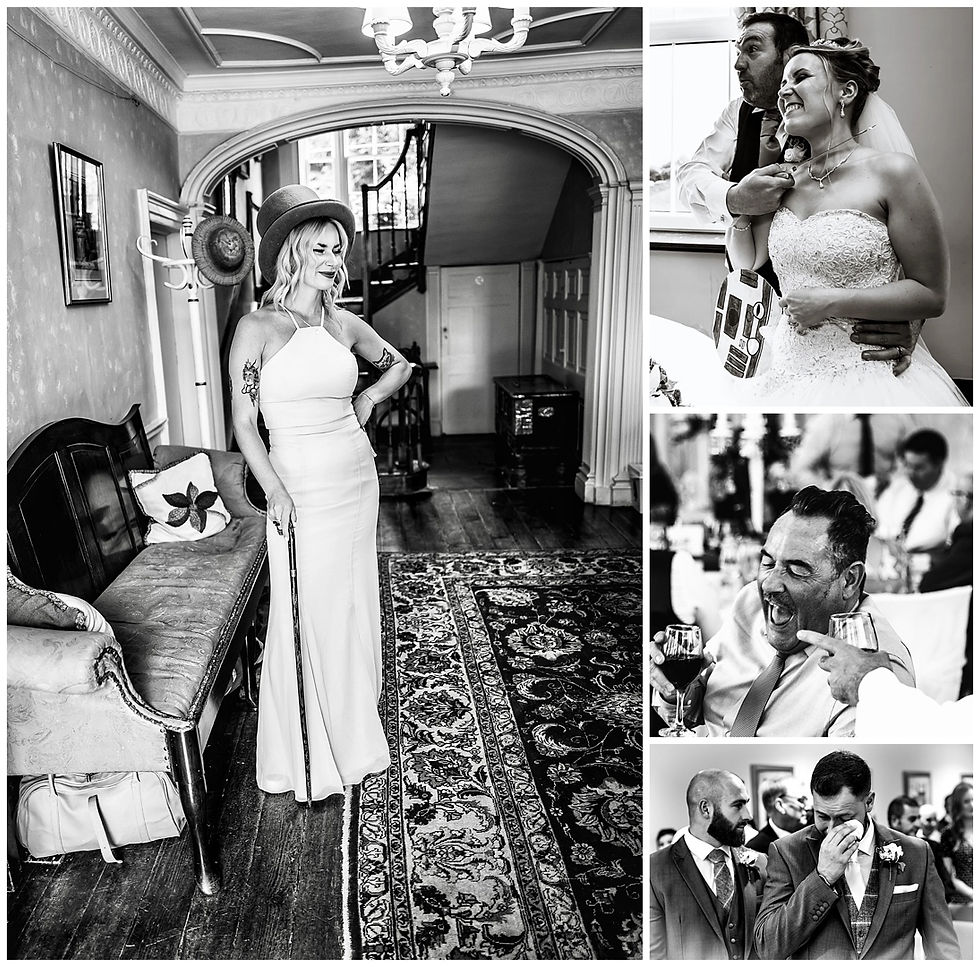Navigating the Challenges of Hiring a Wedding Photographer
- James Matthews

- Mar 4, 2025
- 4 min read
Updated: Apr 29, 2025
When planning a wedding, one of the most significant decisions you’ll make is choosing the right photographer. Your wedding day is a once-in-a-lifetime event, and the memories captured in photographs will last forever. However, the process of hiring a wedding photographer can come with its own set of challenges. Here, we delve into ten potential problems you may face and how to navigate them to ensure you get the best possible results for your special day.
1. Style Mismatch
One of the first hurdles couples often encounter is finding a photographer whose style aligns with their vision. Wedding photography encompasses various styles, from traditional to documentary, fine art to photojournalistic. It’s essential to thoroughly review portfolios and understand the photographer's aesthetic before making a decision. Look for consistency in their work, and ensure their style resonates with your personal taste. Communicating your vision clearly during initial discussions can also help avoid any misalignment.
2. Availability
The most sought-after wedding photographers can book up quickly, sometimes even years in advance. If you have a specific photographer in mind, it's crucial to check their availability as soon as you set your wedding date. If they’re already booked, consider asking for recommendations for similar photographers. Alternatively, be flexible with your wedding date or time to increase the likelihood of securing your first choice.
3. Price vs. Budget
Wedding photography can be a significant financial investment, and prices can vary widely. While it's essential to stay within your budget, remember that the cost often reflects the photographer’s experience, skill level, and the quality of their work. Be wary of photographers who offer prices that seem too good to be true; they may lack the experience or expertise needed to deliver high-quality results. Always ask for a detailed breakdown of costs to understand what is included in the package.
4. Lack of Experience
While everyone has to start somewhere, hiring an inexperienced photographer can lead to missed moments and poor-quality images. Request to see a complete gallery from a recent wedding to assess their ability to capture the day comprehensively. Look for their proficiency in handling various lighting conditions, group shots, candid moments, and emotional interactions. If possible, opt for photographers with a proven track record and positive reviews from previous clients.
5. Communication Issues
Clear and open communication is vital when hiring a wedding photographer. Misunderstandings regarding expectations, timelines, or specific shots can lead to frustration on your wedding day. Schedule an initial consultation to discuss your vision, must-have shots, and any specific requests. Establishing a rapport with your photographer can help ensure that they understand your preferences and can execute your vision effectively.
6. Limited Portfolio
A photographer with a diverse portfolio is better equipped to handle the various challenges that can arise on your wedding day. When reviewing a photographer’s work, consider their ability to capture different environments, lighting conditions, and emotions. A limited portfolio may indicate a lack of experience or versatility. Be sure to ask for a variety of examples that demonstrate their range and adaptability.
7. Hidden Fees
Budgeting for wedding photography isn’t just about the base fee; there can be additional costs that catch couples off guard. These may include travel fees, overtime charges, or costs for prints and albums. To avoid any surprises, ask for a comprehensive list of potential extra charges upfront. A reputable photographer should be transparent about their pricing and willing to discuss any concerns you may have.
8. Editing Time
After the wedding, couples often eagerly anticipate receiving their photos. However, some photographers may take an extended period to deliver edited images. Make sure to ask about their editing timeline during the hiring process. While it’s reasonable for photographers to take time to ensure quality work, understanding the expected delivery timeframe can help manage your expectations and avoid disappointment.
9. Personality Clashes
A photographer’s personality can significantly impact the atmosphere of your wedding day. If you don’t feel comfortable with your photographer, it can show in the photos. Ideally, you want a photographer who is not only professional but also personable and easy to work with. Schedule a meeting or an engagement shoot before the wedding to gauge your compatibility. A photographer who can connect with you and your guests will capture more genuine and candid moments.
10. Contractual Issues
Finally, it’s crucial to review the contract carefully before signing. Contracts should outline all details, including payment terms, cancellation policies, and rights to the images. Ensure you fully understand what you’re agreeing to and clarify any points that seem vague or confusing. If possible, consult with someone experienced in wedding planning or legal matters to ensure you’re making an informed decision.
Conclusion
Hiring a wedding photographer is a vital part of your wedding planning process, and being aware of potential problems can help you make more informed decisions. By taking the time to research, communicate clearly, and understand the nuances of wedding photography, you can mitigate these challenges and find a photographer who will beautifully capture the essence of your special day. After all, the memories you create on your wedding day deserve to be preserved in stunning photographs that will last a lifetime.





Comments